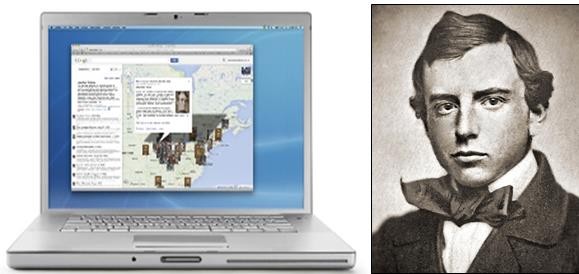Over the last few years, few issues involving higher education have generated as much attention as the promise and perils of online learning. What catalyzed this reaction was the rise of something known as massive open online courses (MOOCs), which sometimes drew tens of thousands of people from across the globe to free university-level courses offered via streaming video online.
Dickinson College is not in the MOOC business, but we have been experimenting with online learning. Each summer since 2012, the House Divided Project at Dickinson has been partnering with the Gilder Lehrman Institute of American History (an organization which focuses on history education and teacher development for K-12 educators) to offer a series of increasingly ambitious online graduate-level classes about the Civil War or Abraham Lincoln.
Before undertaking this online leap, Prof. Pinsker and his undergraduate students at Dickinson provided a careful look at some of the controversies surrounding online learning in higher education. Pinsker posed a series of 10 critical questions at the outset which he hoped their study might answer. Then Russ Allen, ’14, helped begin this initiative by examining some articles that put the MOOC controversy into historical context. Leah Miller, ’14, added to the effort at context by reviewing some of the most hyperbolic claims of MOOC advocates. Russ Allen returned to the fray with a fascinating piece about grading practices online –a careful dissection of the claims about computer-graded and peer-graded assignments.
But ultimately, the folks at Dickinson decided to try it out for themselves. The “Understanding Lincoln” online graduate course is not a MOOC, but it is a hybrid experiment, one that provides some free or low cost open access to auditors alongside full credit and interaction for tuition-paying graduate students. Leah Miller provided a telling glimpse inside the first session of the first class night in 2013. More recently, Prof. Pinsker has offered an overview of the whole experience in this Storify piece.
All of these short blog posts contain many links and embedded multi-media resources. Seminar students don’t need to read them all, but they should try to read deeply enough to appreciate the contours of the debates about online learning and to begin to think about whether their education would be stronger or weaker if part of it moved into cyberspace.
